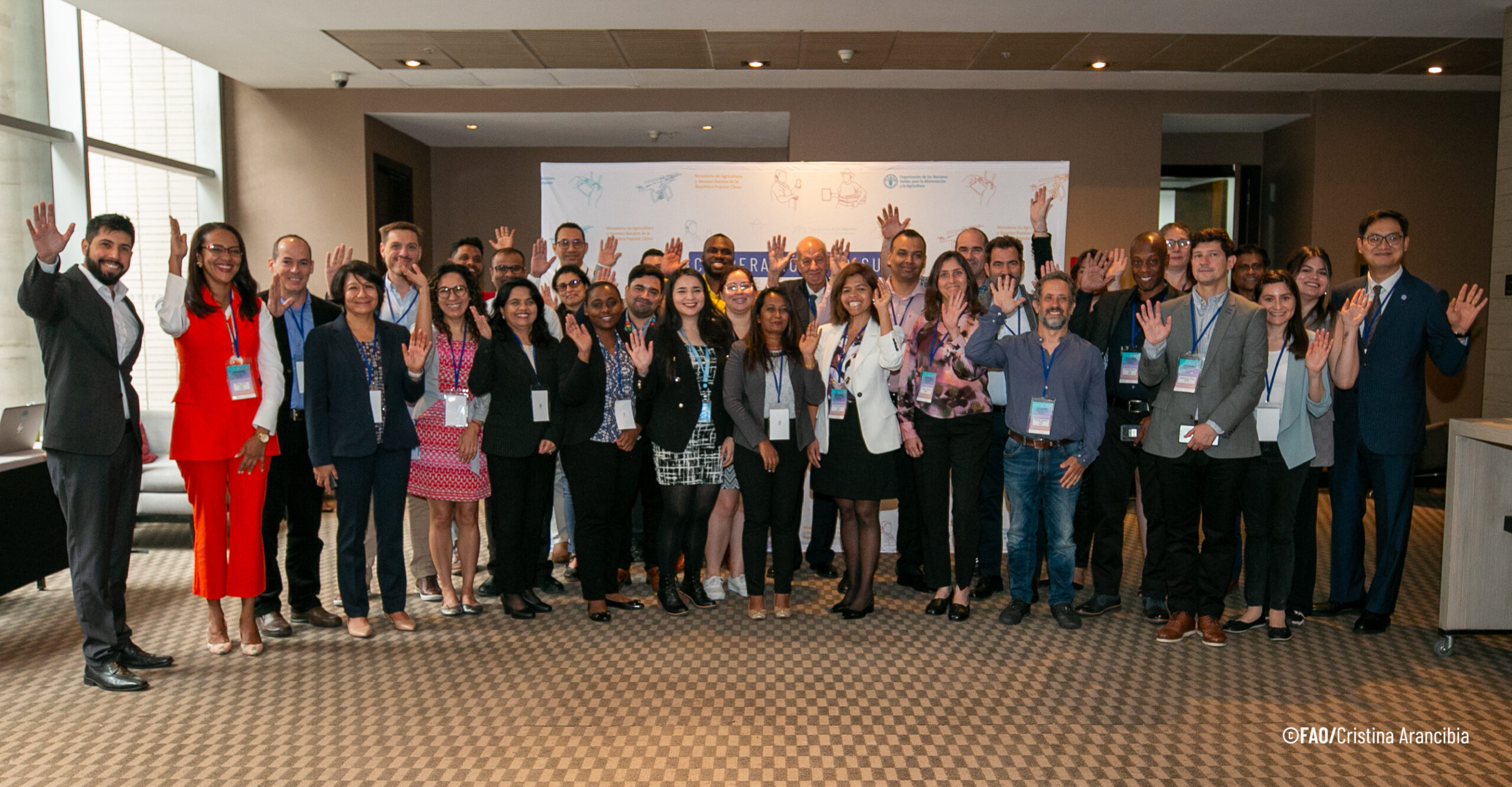The Food and Agriculture Organization of the United Nations (FAO) held the workshop “Exchange of experiences in digitization and connectivity in rural areas in Latin America and the Caribbean,” which brought together technical profiles of FAO and governments that support the implementation of digital pilots in Argentina, Barbados, Chile, Costa Rica, Cuba, Guyana, Jamaica, Mexico, Panama, Suriname, Trinidad, and Tobago and Uruguay.
The event was held within the framework of the South-South Cooperation project: Digital transformation and innovation in agriculture, promoted by FAO and the People’s Republic of China to contribute to the recovery of rural livelihoods through the use of digital solutions in countries that are part of the Community of Latin American and Caribbean States (CELAC).
For two days, the guests discussed the digitization of agriculture and rural areas. They also presented the objectives and progress of the initiatives they are developing with public institutions and other organizations developing rural digitization plans and discussed future challenges to ensure their projects’ successful implementation and long-term sustainability.
At the inauguration, Maya Takagi, FAO’s Regional Program Leader for Latin America and the Caribbean, appreciated the importance of creating partnerships and emphasized that cooperation between FAO and China “is essential to advance the Sustainable Development Goals (SDGs).”
Luiz Beduschi, Senior Policy Officer, thanked the government officials for their presence and said, “There is no doubt that the digitalization of rural areas is a priority if we want to transform and revitalize family agriculture towards a more sustainable and inclusive economy.”
Jiang Jiang, Program Officer for South-South and Triangular Cooperation, acknowledged the strong commitment and support of the People’s Republic of China to this project and highlighted CELAC’s vision to move towards innovative solutions to recover from the pandemic.
“We hope that the new tools, solutions, and practices provided by this project will improve the lives of many rural communities in the CELAC countries and generate new ideas, new approaches, and modalities of South-South and Triangular Cooperation,” said the Program Officer for South-South and Triangular Cooperation.
The recommendations and conclusions of this meeting are a valuable contribution to guide the work of the South-South Cooperation Project: Digital Transformation and Innovation in Agriculture to promote connectivity and digital solutions in rural areas.
1000 Digital Villages Initiative presents progress and achievements
The workshop Exchange of experiences in digitization and connectivity in rural areas in Latin America and the Caribbean was also an opportunity to present the work that the 1000 Digital Villages initiative has carried out to strengthen the digitization of services and the use of digital tools in rural areas of the region.
Ximena Quezada, Rural Development and Project Management Specialist at FAO and member of the technical team implementing 1000 Digital Villages in Latin America and the Caribbean, presented the main achievements of the initiative, highlighting the completion of the online course “Audiovisual Tools for Digital Marketing”, the development of diagnostic reports and digital priorities in rural tourism experiences, and the preparation of a document on rural digitization that will be published soon.
The 1000 Digital Villages Initiative and the South-South Cooperation Project are working to promote digital pilot projects in Chile, Costa Rica, Uruguay, Cuba, Jamaica and Panama.




